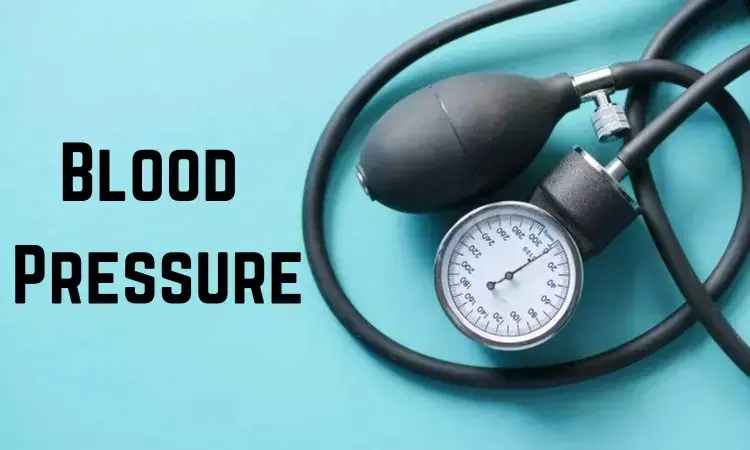- Home
- Medical news & Guidelines
- Anesthesiology
- Cardiology and CTVS
- Critical Care
- Dentistry
- Dermatology
- Diabetes and Endocrinology
- ENT
- Gastroenterology
- Medicine
- Nephrology
- Neurology
- Obstretics-Gynaecology
- Oncology
- Ophthalmology
- Orthopaedics
- Pediatrics-Neonatology
- Psychiatry
- Pulmonology
- Radiology
- Surgery
- Urology
- Laboratory Medicine
- Diet
- Nursing
- Paramedical
- Physiotherapy
- Health news
- Fact Check
- Bone Health Fact Check
- Brain Health Fact Check
- Cancer Related Fact Check
- Child Care Fact Check
- Dental and oral health fact check
- Diabetes and metabolic health fact check
- Diet and Nutrition Fact Check
- Eye and ENT Care Fact Check
- Fitness fact check
- Gut health fact check
- Heart health fact check
- Kidney health fact check
- Medical education fact check
- Men's health fact check
- Respiratory fact check
- Skin and hair care fact check
- Vaccine and Immunization fact check
- Women's health fact check
- AYUSH
- State News
- Andaman and Nicobar Islands
- Andhra Pradesh
- Arunachal Pradesh
- Assam
- Bihar
- Chandigarh
- Chattisgarh
- Dadra and Nagar Haveli
- Daman and Diu
- Delhi
- Goa
- Gujarat
- Haryana
- Himachal Pradesh
- Jammu & Kashmir
- Jharkhand
- Karnataka
- Kerala
- Ladakh
- Lakshadweep
- Madhya Pradesh
- Maharashtra
- Manipur
- Meghalaya
- Mizoram
- Nagaland
- Odisha
- Puducherry
- Punjab
- Rajasthan
- Sikkim
- Tamil Nadu
- Telangana
- Tripura
- Uttar Pradesh
- Uttrakhand
- West Bengal
- Medical Education
- Industry
Noninvasive Blood Pressure Monitoring Comparable to Invasive Method in Critical Care

In a recent groundbreaking study conducted at a tertiary care facility, researchers sought to determine the accuracy of noninvasive blood pressure (NIBP) monitoring compared to the invasive method using arterial catheters in critically ill patients. The findings, based on simultaneous measurements in 1852 adults, reveal a significant level of agreement between the two methods, shedding light on potential advancements in critical care monitoring.
The study results were published in the Journal of Intensive Care Medicine.
In the intensive care unit (ICU), arterial catheters are commonly employed for the invasive monitoring of blood pressure (BP). Nevertheless, the existing data comparing the precision of noninvasive methods to arterial catheters in ICU blood pressure measurements are constrained by small sample sizes and varied methodologies. Hence researchers from Washington DC, USA conducted a single center, observational study To determine the agreement between invasive arterial blood pressure monitoring (IABP) and noninvasive blood pressure (NIBP) in critically ill patients.
Conducted at a tertiary care facility, this observational study focused on critically ill adults to measure blood pressure (NIBP). Clinical features were examined at the time of blood pressure (BP) measurement, encompassing patient demographics, laboratory data, severity of illness, specific interventions (such as mechanical ventilation and dialysis), and vasopressor dose. The objective was to pinpoint specific clinical scenarios in which measurement agreement is either more or less likely.
Findings:
- The study unveiled a median difference of 6 mm Hg in mean arterial pressure (MAP) between invasive arterial blood pressure (IABP) and NIBP readings.
- This level of agreement, within a narrow interquartile range of 1-12 (P < 0.01), signifies a promising development in critical care monitoring.
- Logistic regression analysis identified five independent predictors of measurement discrepancy, providing valuable insights into factors influencing the variance between the two methods.
- Notably, increasing doses of norepinephrine were associated with a higher likelihood of discrepancy (adjusted odds ratio [aOR] 1.10, 95% confidence interval [CI] 1.08-1.12, P = 0.03 for every change in 5 µg/min).
- Lower MAP values (aOR 0.98, CI 0.98-0.99, P < 0.01 for every change in 1 mm Hg), higher body mass index (BMI) (aOR 1.04, CI 1.01-1.09, P = 0.01 for an increase in 1), increased patient age (aOR 1.31, CI 1.30-1.37, P < 0.01 for every 10 years), and radial arterial line location (aOR 1.74, CI 1.16-2.47, P = 0.04) were also associated with measurement discrepancies.
The study's authors emphasized the broad agreement observed between IABP and NIBP in critically ill patients across various blood pressure ranges and severity of illness. While certain variables were identified as predictors of discrepancies, their predictive capacity was characterized as modest. This insight could potentially guide future studies to determine which specific patient groups might derive enhanced benefits from arterial catheterization.
In conclusion, this groundbreaking study not only underscores the substantial agreement between invasive and noninvasive blood pressure monitoring in critically ill patients but also highlights the potential for a more personalized and less invasive approach to critical care.
Further reading: Haber EN, Sonti R, Simkovich SM, et al. Accuracy of Noninvasive Blood Pressure Monitoring in Critically Ill Adults. J Intensive Care Med. Published online January 12, 2024. doi:10.1177/08850666231225173
BDS, MDS
Dr.Niharika Harsha B (BDS,MDS) completed her BDS from Govt Dental College, Hyderabad and MDS from Dr.NTR University of health sciences(Now Kaloji Rao University). She has 4 years of private dental practice and worked for 2 years as Consultant Oral Radiologist at a Dental Imaging Centre in Hyderabad. She worked as Research Assistant and scientific writer in the development of Oral Anti cancer screening device with her seniors. She has a deep intriguing wish in writing highly engaging, captivating and informative medical content for a wider audience. She can be contacted at editorial@medicaldialogues.in.
Dr Kamal Kant Kohli-MBBS, DTCD- a chest specialist with more than 30 years of practice and a flair for writing clinical articles, Dr Kamal Kant Kohli joined Medical Dialogues as a Chief Editor of Medical News. Besides writing articles, as an editor, he proofreads and verifies all the medical content published on Medical Dialogues including those coming from journals, studies,medical conferences,guidelines etc. Email: drkohli@medicaldialogues.in. Contact no. 011-43720751




